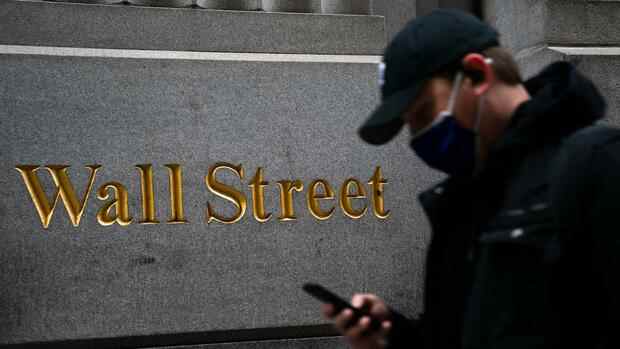America’s bankers are ending their most profitable year ever these days. The financial sector benefited from three factors. At the beginning of the year there was still a flourishing share trade and the high demand for shell IPOs, the so-called Spacs, from which institutes made splendid earnings. In the past few months, it was an unprecedented global boom in mergers and acquisitions that made investment bankers the stars of Wall Street again.
European banks benefited marginally from this – and thus remain in the shadow of the Wall Street banks: Goldman Sachs already knew in September that 2021 would be the best year ever.
Morgan Stanley made $ 4 billion more profit in the first quarter than usual in a year. JP Morgan, America’s largest bank, is preparing for $ 45 billion in profit, a quarter more than the previous record from 2019. Of course, this development will once again be reflected in record bonus payments.
But even all of these successes cannot hide the fact that the mood in the financial sector is bad. Many bank managers sense that yesterday’s business will no longer be tomorrow’s business.
Top jobs of the day
Find the best jobs now and
be notified by email.
Many bank bosses still cling too much to old principles and thought patterns instead of adjusting to the new realities. Wall Street needs new bankers, new ways of working, new talent right now in order to be prepared for the future. Those who ignore this will pay dearly for it in the years to come – and it dawns on some that the record years could also be over one day.
There are three main reasons for the bad mood. First, the bankers are burned out. Sure, the profession has never been known for a good work-life balance. But the pandemic has pushed many to their limits, as a call for help from young Goldman employees impressively described in the spring.
“But holding onto the past is the wrong strategy …”
(Photo: AP)
The bankers talked about the physical and mental consequences that the many 100-hour weeks had left them with. In doing so, they have sparked an industry-wide debate about working conditions.
In many cases, however, the solution was not to reduce the workload, but to offer employees (even) more money. “They shouldn’t do it like that, after all, we used to work hard too,” is the mantra of managers who have worked in the financial sector for many decades and who today decide whether or not to break up old structures.
But sticking to the past is the wrong strategy, as demonstrated by the shortage of staff and the hard fight for new talent. Second, there are more alternatives than ever before. Regardless of whether it is the tech, fintech or crypto industry – there is a need for talents everywhere who can bring their knowledge from the traditional financial world to new areas. Often not only are the working hours shorter, the working environment is often much more pleasant.
Moderate changes in the work environment are realistic
That is not to say that Goldman and JP Morgan will have to be as unconventional as the crypto world in the future. But there are ways to improve the working atmosphere. This year there was a passionate discussion about whether or not bankers have to work from the office in times of the pandemic.
The old argument that the bosses of Goldman, Morgan Stanley and JP Morgan like to stick to is: Banking is an apprenticeship in which young professionals have to learn things from old hands, and that is only possible in the office. As a result, the banks were the first to urge people to return to the glittering glass towers.
Long before Covid, the world of work was such that young bankers often only communicate with their stressed superiors via email, often fail to understand instructions and are forced to work inefficiently for an unnecessarily long time.
Finance houses should also use their record profits to invest in better mentoring programs and think about what else to come to the office for in the “New Work” age. Because the low flexibility, the stubborn insistence on returning to the office, which is now being collected again by many banks because of Omikron, is another point that makes bankers feel bad.
At Jefferies, for example, a number of employees fell ill with Covid in early December. Only then did the bank decide to send everyone back to the home office. Ultimately, these are also questions of work culture. Other industries, including and especially from the tech, fintech and crypto sectors, are much further ahead here.
More: Wall Street is on the up again – tech stocks are particularly in demand
